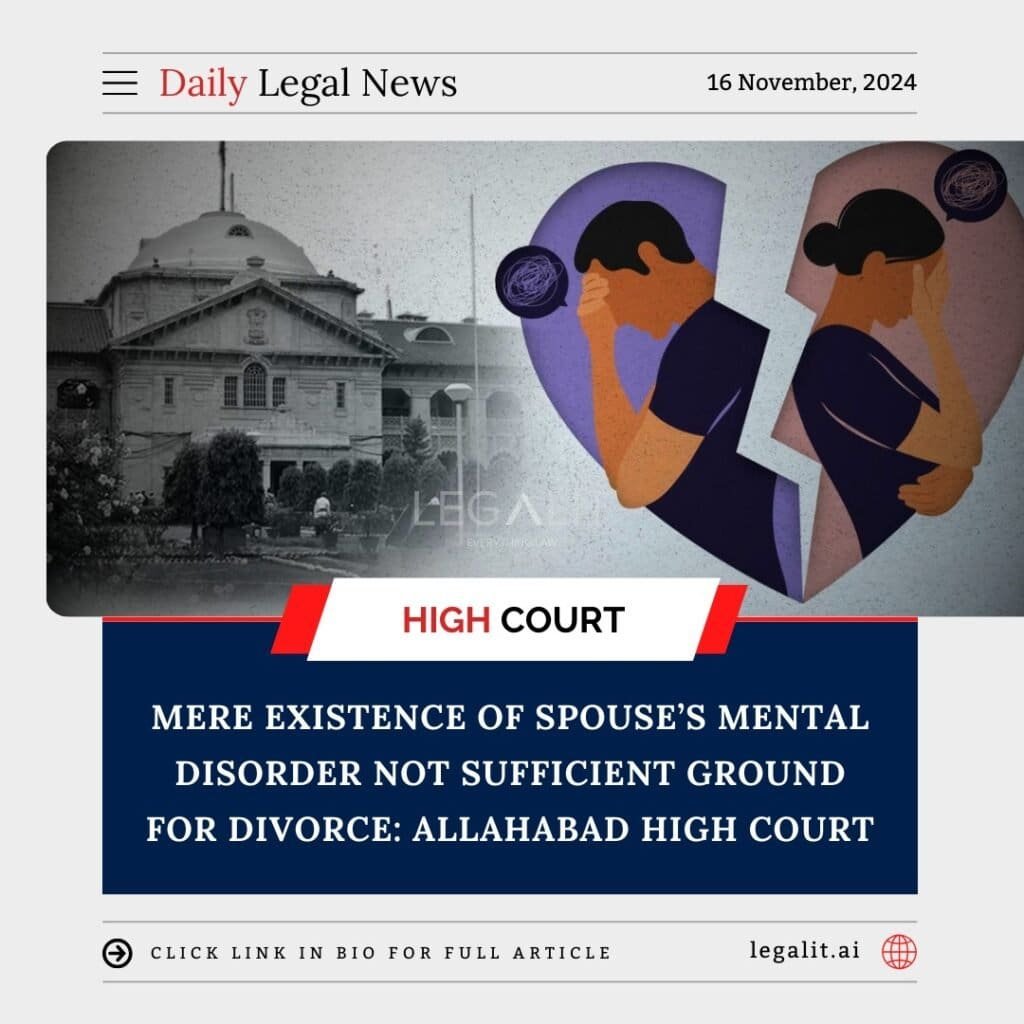
The Allahabad High Court has ruled that the existence of a mental disorder in a spouse does not automatically justify the grant of divorce, emphasizing that the condition must make it impossible for the other spouse to live with the afflicted partner.
Background:
The case involved a husband seeking divorce under the Hindu Marriage Act, 1955, citing his wife’s mental disorder. He argued that her condition rendered it difficult for him to maintain a normal marital relationship. The wife contested the claim, asserting that her mental health did not interfere with the relationship or her duties as a spouse.
Court’s Rationale:
The High Court dismissed the divorce petition, outlining key considerations:
- Severity and Impact: A mere diagnosis of a mental disorder is insufficient; it must be proven that the condition is of such severity that it disrupts the marital bond.
- Intolerance Threshold: The court emphasized that occasional behavioral issues due to a disorder do not meet the legal threshold for granting divorce.
- Humanitarian Perspective: Mental health issues require compassion and support, not abandonment or separation, unless the situation becomes unendurable for the other spouse.
The Court referred to Section 13(1)(iii) of the Hindu Marriage Act, which allows divorce on grounds of mental disorder only if it causes severe and incurable disruption to marital life.
Existing Legal Provisions:
- Hindu Marriage Act, 1955: Section 13 outlines mental disorder as a ground for divorce but requires proof of the disorder’s intensity and its effect on the marital relationship.
- Supreme Court Precedents: Past rulings have clarified that mental illness alone cannot be a ground for divorce unless it leads to an irretrievable breakdown of the marriage.
Conclusion:
This judgment reaffirms the judiciary’s balanced approach to marital disputes involving mental health issues. It underscores the importance of addressing such matters with sensitivity and discourages the misuse of mental illness as an easy escape route in matrimonial conflicts.